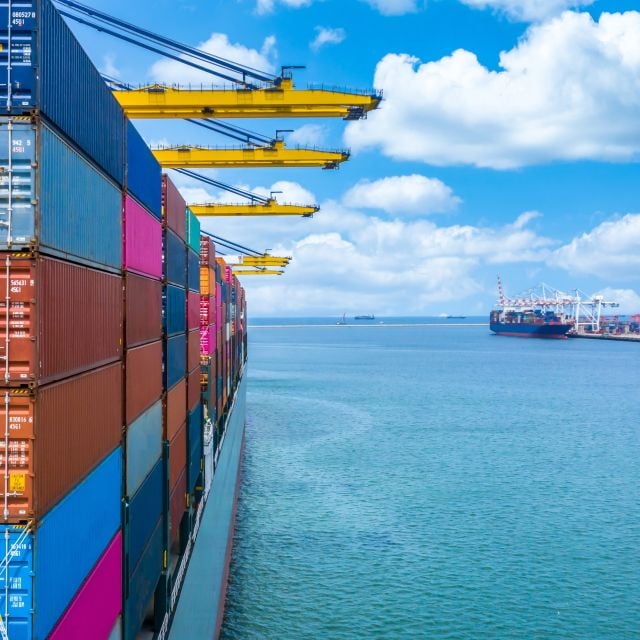Effective Monday, April 29, 2019, the Government of Canada discontinued its 25% provisional safeguard surtax imposed since October 25, 2018, on imports of concrete reinforcing bar, energy tubular products, hot-rolled sheet, pre-painted steel and wire. The Government also confirmed in a news release on April 26, 2019, that it will implement definitive safeguard measures on imports of heavy plate and stainless steel wire that the Canadian International Trade Tribunal found on April 3, 2019, to have caused or threaten to cause injury to domestic steel producers.
Definitive Safeguard Measures
Details on the definitive safeguard measures have not yet been announced. The measures will likely remain in effect for three years in accordance with the Tribunal's recommendations as requested in the Order-in-Council that initiated the Tribunal inquiry. Safeguard measures may remain in place for a maximum period of four years under the CITT Act, and may be extended once for a total maximum of eight years including any time that a provisional measure was in effect. However, if a measure is imposed for three years or more, a mid-term review inquiry must be conducted halfway through the period.
The Government faces a deadline of May 12, 2019, to finalize the form of the protection and related enforcement procedures. If the Government adopts the Tribunal's recommendation, it will take the form of a tariff rate quota that will operate to permit specified volumes to be imported surtax free and the balance subject to surtax at a to be determined rate. The current provisional tariff rate quota surtax of 25% levied against all investigated categories of steel will remain in force until that date, and importers must continue to obtain import shipment-specific import permits covering within volume quota, failing which they will have to pay surtaxes.
Refunds
Finance Canada informally advised the Canadian Society of Customs Brokers that the Government intends to refund provisional safeguard surtaxes paid by importers on the other five steel products. However, the Government has not made a formal public announcement to this effect or provided any details on refund procedures. It also remains to be seen whether the Government will refund surtaxes paid on imports of heavy plate and stainless steel wire originating in the countries that were excluded from the injury finding.
Consultations on Other Means of Protection
Definitive safeguard measures are not the last word on protection for the other steel categories. In its April 26 statement, Finance Canada also announced the initiation of a 30-day consultation period with the steel industry and workers to "determine what further protections are required". The Government expressed its intention to "take every legal action at its disposal to protect Canadian jobs and industry from unfair trade practices". This includes an explicit direction to the Canada Border Services Agency to take a more aggressive approach in pursuing trade remedy measures, including more frequent government-initiated investigations and an explicit directive to "boost protections through higher duties".
While the steel industry is no stranger to seeking protection from injurious dumping and subsidization, and in fact operates behind many Tribunal protective orders, it is expected that the number of complaints and the scope of these complaints, both in terms of goods and identified exporting countries, will increase and broaden, respectively. It is to be expected that investigations by the Canada Border Services Agency will be directed toward increasing protection by assessment and enforcement of "higher duties", no doubt music to the ears of the domestic industry but the sound of nails on blackboards to those of importers. It may also be fair to assume that importers of other injuriously dumped or subsidized goods may face similar attention; it would be surprising if the Canada Border Services Agency provided inconsistent levels of service to the domestic industries of Canada.
The notice also directs attention to imports of steel from the United States that face surtaxes in response to the application of section 232 [Trade Expansion Act, 1962 (19 U.S.C. §1862)] measures by the United States. Finance Canada plans to re-examine the existing remission orders for steel products exempted from the United States Countermeasures Surtax "in order to further incentivize the use of Canadian-made steel products".
Next Steps
Finance Canada is currently developing its definitive safeguard measures, and has until May 12, 2019, to either adopt or reject the Tribunal's recommendations on the form of domestic protection for heavy plate and stainless steel wire. It will also announce how it intends to proceed regarding refunds of provisional surtaxes for categories that the Tribunal found had not caused or threatened injury.
The definitive safeguard measures could have a major impact on the Canadian construction and EPC, manufacturing, mining, petrochemical and oil and gas, and other industrial sectors that use heavy plate and stainless steel wire. Of significant concern for importers is Finance Canada's expressed intention to broadly pursue alternative protectionist measures for the Canadian steel sector and take a more aggressive application and enforcement approach to anti-dumping and countervailing measures.
Businesses should contact the International Trade group at Bennett Jones to discuss company-specific issues related to the steel surtax, including obtaining refunds of provisional surtaxes on qualifying products, mitigating the impact of definitive measures, and the benefits of participating in the current government consultations or in future trade remedy proceedings.






















